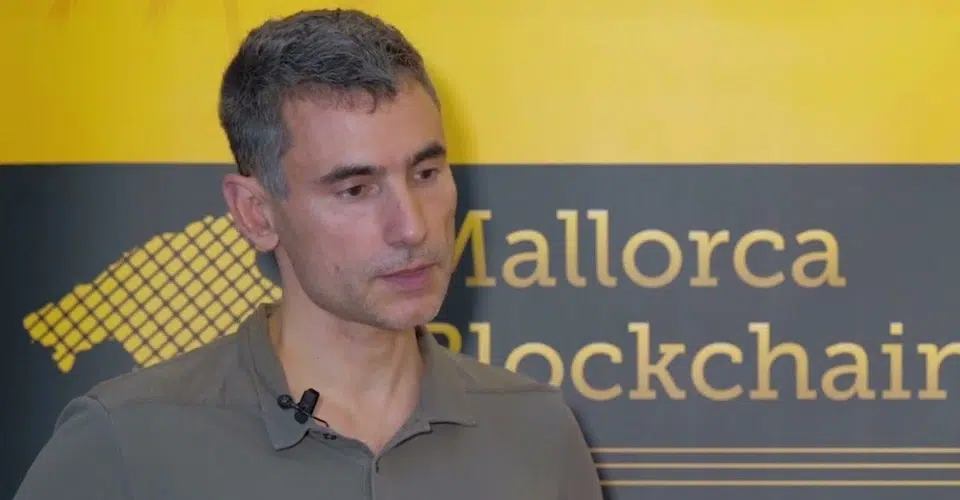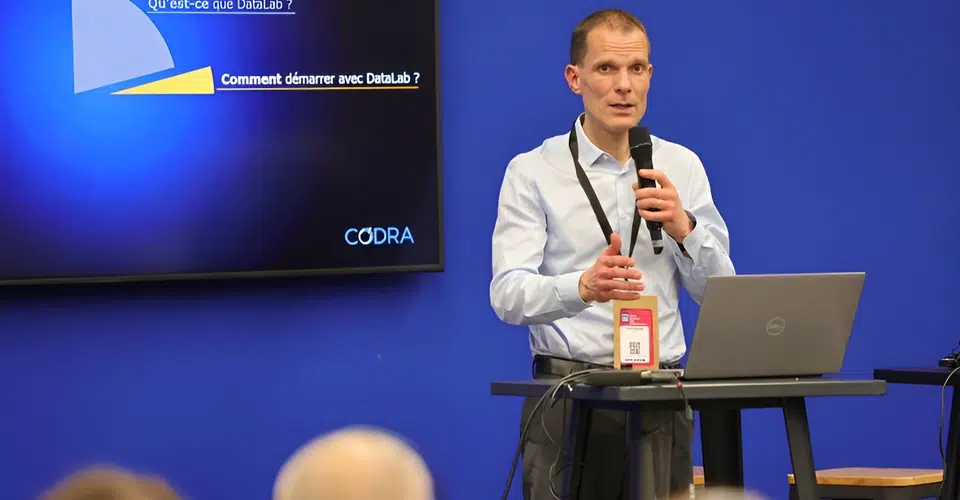14 Exceptional PyQT Developers

PyQt’s community is powered by devs who have made significant contributions through open-source projects, educational content, corporate projects, and community support.
In the past years, these individuals have shaped the PYQT ecosystem – from maintaining crucial libraries to sharing knowledge via blogs and forums. Below is a list of outstanding PyQt developers which includes library maintainers, startup founders still coding, tech bloggers/educators, corporate engineers and even competitive programming champs.
- Carlos Cordoba
- Detlev Offenbach
- Edward K. Ream
- Blaž Zupan
- Daniel Althviz
- Michael Herrmann
- Joshua Willman
- Thomas Voegtlin
- Florian Bruhin
- Harrison Kinsley
- Jeremy Sanders
- Pierre Raybaut
- Jonathan Thomas
- Luke Campagnola
Now, let’s delve deeper into their profiles and contributions.
Carlos Cordoba

Nationality: Mexican
Carlos is the lead maintainer of Spyder IDE, the Scientific Python Development Environment that uses PyQt for its UI. Since 2012, Carlos has been driving Spyder’s development after its creator Pierre Raybaut stepped aside.
Under his leadership, Spyder has transitioned to Python 3, Qt5/Qt6 via PyQt, and gained a plugin ecosystem (e.g., for notebooks, interactive widgets). Carlos is responsible for major Spyder features like the redesigned interface and an improved debugger. In the past five years, he spearheaded Spyder 5 and 6 releases, which included significant UI/UX updates and performance improvements. He’s also active in the broader scientific Python community (e.g., giving talks at SciPy conferences).
Carlos’s work ensures that PyQt remains at the heart of one of the most popular IDEs for data science, proving its viability in large-scale applications. Spyder’s sponsor, the Chan Zuckerberg Initiative, recognizes his key role as Spyder’s lead maintainer.
- Linkedin: Carlos Cordoba
- X (Twitter): @ccordoba12
- Github: ccordoba12
Detlev Offenbach
Nationality: German
Detlev is the developer of the Eric Python IDE, a full-featured IDE written in Python and PyQt. He started Eric in 2002 and has continuously maintained it.
As the main developer of Eric, Detlev has implemented a plugin system, integrated debuggers, Qt Designers, and more – all using PyQt for the UI. Eric itself stands as a testament to PyQt’s capability to create complex developer tools; it has long served as a professional IDE with powerful Qt-based interfaces. In the last five years, Detlev ported Eric to Qt5/Qt6 and Python 3, keeping it up-to-date for modern use. He also contributes to related projects (like QScintilla, the editor component).
His work greatly benefits the PyQt community by providing a native Python IDE for PyQt development.
- Linkedin: Detlev Offenbach
Edward K. Ream
Nationality: American
Edward is the creator of Leo, a literate-programming inspired outliner and IDE, written in Python with a Qt GUI (via PyQt). Ed started Leo around 2000 and has guided it as an open-source project for over two decades.
Leo uses PyQt for its tree-based outline interface and editor panes, and Ed has ensured it remains compatible with new PyQt versions and Python 3. In recent years, he and contributors have added features like an embedded Jupyter console and real-time collaboration. Leo’s longevity is a testament to Ed’s commitment; as of 2024, Leo is on version 6.7 with active development. A retired software engineer, Ed remains very active on Leo’s mailing lists and continually implements community suggestions. He has also embraced Qt/PyQt advances – for example, updating Leo to Qt5 and adopting PyQt or PySide via Qt’s abstraction.
Under Ed’s leadership, Leo has a small but passionate user base (especially among writers and developers who enjoy outline-based workflows). His work shows PyQt’s suitability for complex productivity tools and how a long-running project can adapt over time.
- Linkedin: Edward Ream
- Github: edreamleo
Blaz Zupan

Nationality: Slovenian
Blaž is a professor of data mining and one of the original creators of Orange, an open-source visual programming data analysis toolkit that heavily utilizes PyQt for its GUI. At the University of Ljubljana, Blaž started Orange in the late 1990s, initially with Python and Qt for the interface.
Orange’s visual workflow interface (canvas of widgets) is implemented in PyQt, enabling users to drag-and-drop components for machine learning without coding. In the past five years, Blaž has overseen Orange’s growth in features (text mining add-ons, deep learning widgets) and usability enhancements – keeping Orange’s GUI modern with Qt5 (and now Qt6 via QtPy). He actively promotes Orange through workshops, MOOCs, and conference talks, emphasizing an intuitive UI to “democratize data science”. Blaž also collaborates with the Chan Zuckerberg Initiative on using Orange for bioinformatics. As both an academic and entrepreneur (co-founder of Orange Data Mining startup), he continues to bridge research and practical tools.
His work with Orange demonstrates PyQt’s strength in building educational and analytical software that is both powerful and user-friendly.
- Linkedin: Blaž Zupan
- X (Twitter): @bzupan
Daniel Althviz
Nationality: Colombian
Daniel is the co-maintainer and release manager of Spyder IDE, working alongside Carlos Cordoba. He joined the Spyder project in late 2016 and has since become one of its longest-tenured developers.
Daniel has contributed heavily to Spyder’s recent versions, including the migration of Spyder’s editor to use the QtPy abstraction and improvements in remote development support. He often works behind the scenes (“a lot of work behind the scenes to get Spyder 6.0 out”) – for example, managing the Python package dependencies and CI for Spyder releases. Daniel is also involved in Quansight Labs, focusing on scientific Python tools. A software engineer by training, he brings both development and project management skills to the Spyder team. His dedication over the past five years (particularly in testing and polishing Spyder’s UX) has been crucial to delivering stable releases.
Daniel’s work exemplifies community collaboration in PyQt-based projects: he has helped ensure Spyder’s UI (built on PyQt via QtPy) remains modern and responsive for users in science and education.
Michael Herrmann

Nationality: German
Michael is an entrepreneur-developer known for using PyQt to create fman, a cross-platform dual-pane file manager, and its accompanying build system fbs. In 2016, frustrated with existing desktop app deployment, Michael chose Python+Qt to build fman for its performance and ease.
He not only built fman’s PyQt5-based GUI (which achieved thousands of users), but also open-sourced fbs (fman build system) to simplify packaging PyQt apps on all platforms. His blog posts and book (“PyQt6 Book 2025”) gained attention – even Phil Thompson praised his book as “very good” in the foreword. In recent years, Michael has focused on teaching PyQt; his 19-hour PyQt6 Udemy course and the updated PyQt6 book (2022) reach a broad audience.
He also gave an official Qt Company webinar on fbs, bridging Qt and Python communities. Michael’s work exemplifies modern PyQt usage: from launching a commercial app to empowering others with tools and tutorials. By providing fbs and sharing developer insights, he has lowered the barrier to entry for building and shipping PyQt applications.
- X (Twitter): @m_herrmann
- Github: mherrmann
- Website/Blog: herrmann.io
Joshua Willman
Nationality: American
Joshua is an author and software engineer who has become a PyQt authority through his recent books and courses. With a background in Python and C++, Joshua began writing about PyQt in 2020 and published “Beginning PyQt: A Hands-on Approach to GUI Programming” (2020) and “Modern PyQt” (2021).
These books (updated for PyQt6) cover building real-world applications and have been well-received in the community. Joshua’s approach emphasizes practical projects – from basic widgets to computer vision apps – showcasing PyQt’s versatility. In the last few years, he has also worked as a Test Engineer at Google, but continues to contribute to PyQt education via online tutorials and by maintaining example code on GitHub. He frequently shares tips on social media (X) and engages with learners (for example, highlighting his favorite PyQt resources or answering questions).
By focusing on PyQt for data analysis and project management tools, Joshua has helped renew interest in PyQt6/PySide2 among new developers. His clear, updated teaching materials fill a gap left by older PyQt4-era books, making him one of the top PyQt educators active today.
- Linkedin: Joshua Willman
- X (Twitter): @RedHuli
- Github: joshuawillman
Thomas Voegtlin

Nationality: French
Thomas is the creator and lead developer of Electrum, a lightweight Bitcoin wallet, and he utilized PyQt for Electrum’s user interface. Thomas released Electrum in 2011, and it quickly became one of the most trusted Bitcoin wallets, known for its speed and security.
Electrum’s desktop client is written in Python and originally used PyQt for its GUI (today it allows either PyQt or Qt for Python). Over the past five years, Thomas has focused on advanced Bitcoin features, while keeping Electrum’s interface simple and responsive. He continues to maintain Electrum with frequent updates – the GitHub repository shows him (alias ThomasV) authoring commits and signing releases. Beyond coding, Thomas is active in the crypto community: he’s spoken at conferences and engaged users on forums.
His work with Electrum demonstrates PyQt’s use in custom fintech applications, where reliability is paramount. By marrying Python’s agility with Qt’s GUI framework, Thomas delivered a wallet that, as enthusiasts note, has “brought Bitcoin to the masses” – all while remaining open source and community-driven.
- Linkedin: Thomas Voegtlin
- Github: ecdsa
Florian Bruhin
Supporting both PyQt and PySide in a project is possible — you just need good abstractions and discipline.
Nationality: Swiss
Florian is the creator and lead developer of qutebrowser, a keyboard-driven web browser written in Python with a PyQt backend. Since starting qutebrowser in 2013, Florian has grown the project from a hobby to a part-time job funded by donations.
Qutebrowser showcases PyQt’s power by binding QtWebEngine into a lightweight browser, and Florian’s work on it has influenced both the Qt and Python communities. He’s also a maintainer of pytest-qt (a plugin for testing PyQt/PySide apps) and an active contributor to PyQt/PySide discussions (even providing feedback on PyQt6 issues on Riverbank’s list). In recent years, Florian has spoken at conferences (like EuroPython) about GUI testing and his projects. He remains an advocate for PyQt/PySide in open-source – for example, qutebrowser can work with either PyQt or PySide, thanks to his careful abstraction.
Florian’s public engagement (blogs, talks, mentoring) and his cross-project contributions make him an influential voice in the PyQt ecosystem.
- Linkedin: Florian Bruhin
- X (Twitter): @The_Compiler
- Github: the-compiler
- Website/Blog: bruhin.software
Harrison Kinsley

Nationality: American
Harrison is a prominent Python influencer who has introduced many to PyQt through his online content. With over 1.4 million YouTube subscribers on his “sentdex” channel, Harrison produced a popular series of PyQt5 tutorials, teaching viewers how to build GUI applications like stock charting tools and chat messengers.
His PyQt videos and accompanying text tutorials on PythonProgramming.net helped demystify PyQt for beginners. In the last few years, Harrison expanded into machine learning content, but he continued to showcase PyQt in projects. His 2019–2020 series “Python and PyQt: GUI Development” is frequently recommended to new learners. Harrison’s approach is practical and accessible, often demonstrating PyQt by designing UIs in Qt Designer and coding the logic in Python – best practices he shares in his videos. Beyond tutorials, he co-authored the book “Neural Networks from Scratch” and has created Python libraries, but GUI development remains a theme in his work.
By engaging a broad audience on YouTube and social media, Harrison has significantly grown the PyQt community, proving the value of clear, hands-on teaching.
- Linkedin: Harrison Kinsley
- X (Twitter): @Sentdex
Jeremy Sanders
Nationality: British
Jeremy is the creator of Veusz, an open-source scientific plotting application written in Python and PyQt. An astronomer by background, Jeremy developed Veusz in 2004 to produce publication-quality plots with a GUI, dissatisfied with existing tools.
Veusz uses PyQt for its entire interface, demonstrating how PyQt can be used for complex data visualization software. Jeremy has continuously maintained Veusz (which as of 2023 reached version 3.6), ensuring it works with the latest Qt 5/6 and adding features like 3D plotting and a plugin system. His 2010 guest post describes how he “started writing Veusz” to have a powerful yet easy plotting GUI, and today Veusz supports dozens of plot types and is cross-platform. In recent years, Jeremy’s focus has also included contributions to the Matplotlib project and working as a research software engineer in astrophysics.
He exemplifies the scientist-developer: using PyQt to create tools for researchers. Veusz, under Jeremy’s guidance, shows that a single developer’s passion (with community help) can result in a widely used PyQt application in academia and industry.
- X (Twitter): @xioxox
- Github: jeremysanders
Pierre Raybaut

Nationality: French
Pierre is the original creator of the Spyder IDE and a pioneer in using PyQt for scientific software. A French software engineer, Pierre developed Spyder in 2008–2009, envisioning a MATLAB-like experience in Python.
He chose PyQt for Spyder’s GUI, integrating an editor, console, and variable explorer in a cohesive interface. Pierre also created Python(x,y) (a scientific Python distribution) and WinPython, both featuring PyQt-based tools. Although Pierre stepped down from Spyder maintenance in 2012, his impact persists – Spyder’s core architecture and many plugins were his work. He has continued to support PyQt community efforts: for example, he wrote forewords and reviews for recent PyQt books and gave a 2023 talk reflecting on 15 years of scientific Python GUIs. In his current role at Codra Solutions, Pierre still uses PyQt. Over the last five years, he’s been quietly involved in open-source – e.g., he updated the PyQtGraph-based GUI of PythonQwt.
Pierre’s legacy is felt every time a scientist opens Spyder or runs a PyQt-based analysis – he helped lay the groundwork for Python in scientific computing, with PyQt as a key component.
- Linkedin: Pierre Raybaut
- X (Twitter): @PierreRaybaut
- Github: PierreRaybaut
Jonathan Thomas
Nationality: American
Jonathan is the creator and lead developer of OpenShot Video Editor, a cross-platform non-linear video editor built with Python and PyQt5. He started OpenShot in 2008 with the goal of making a simple, friendly video editor for Linux that has since expanded to Windows and Mac.
Jonathan led OpenShot’s major rewrite (OpenShot 2.0) which transitioned the UI from GTK+ to PyQt5 for better cross-platform support. In the past five years, he has continued to innovate OpenShot – adding features like SVG titling, Blender integration, and improving stability – while receiving multiple awards (e.g., Best Linux Application 2011). As a startup founder (OpenShot Studios, LLC), Jonathan still actively codes and engages the community via frequent blog updates and social media. He exemplifies how PyQt enables complex applications: OpenShot’s timeline, media previews, and dialogs are all PyQt widgets, and Jonathan’s work shows PyQt can handle multimedia software at scale.
His entrepreneurial and coding journey has inspired others in open-source; as he says, “we deserve a better file manager” – and he delivered one for video editing.
- Linkedin: Jonathan Thomas
- X (Twitter): @jonoomph
- Github: jonoomph
Luke Campagnola
Nationality: American
Luke is the original author of PyQtGraph, a pure-Python plotting and graphics library built on PyQt/PySide and NumPy. PyQtGraph is widely used in scientific and engineering tooling where developers need fast interactive plots and custom widgets without leaving the Qt event loop.
The project credits Luke in the repository and licensing, and it has become a common dependency in lab and instrumentation software where PyQt is the default GUI choice. PyQtGraph’s design, leaning on Qt’s GraphicsView and NumPy arrays, has made it a standard pick for high-frequency visualization inside PyQt apps.
- Linkedin: Luke Campagnola
- Github: campagnola
Wrap Up
These experts represent exceptional talent, making them extremely challenging to headhunt. However, there are thousands of other highly skilled IT professionals available to hire with our help. Contact us, and we will be happy to discuss your hiring needs.
Note: We’ve dedicated significant time and effort to creating and verifying this curated list of top talent. However, if you believe a correction or addition is needed, feel free to reach out. We’ll gladly review and update the page.
Frequently Asked Questions
No, PyQt is not dead. It remains an active and widely used framework for building cross-platform desktop applications with Python. While newer frameworks exist, PyQt is still chosen for projects requiring robust GUI development.
In the United States, PyQt developers typically earn $80,000 to $115,000 per year. Hourly contract rates range from $40 to $85 depending on experience and project scope. Rates in Eastern Europe and Latin America are usually lower.
PyQt consultants design and build desktop applications, create custom user interfaces, and integrate backend functionality with GUI elements. They often optimize performance, maintain legacy PyQt applications, and provide cross-platform deployment support.
Yes, it can be somewhat challenging. While Python developers are abundant, fewer specialize in PyQt, so finding experienced desktop application developers may take longer.
Freelance platforms like Upwork, Freelancer, and Fiverr list PyQt developers. For more advanced expertise, Toptal or specialized Python development agencies can be good sources.
